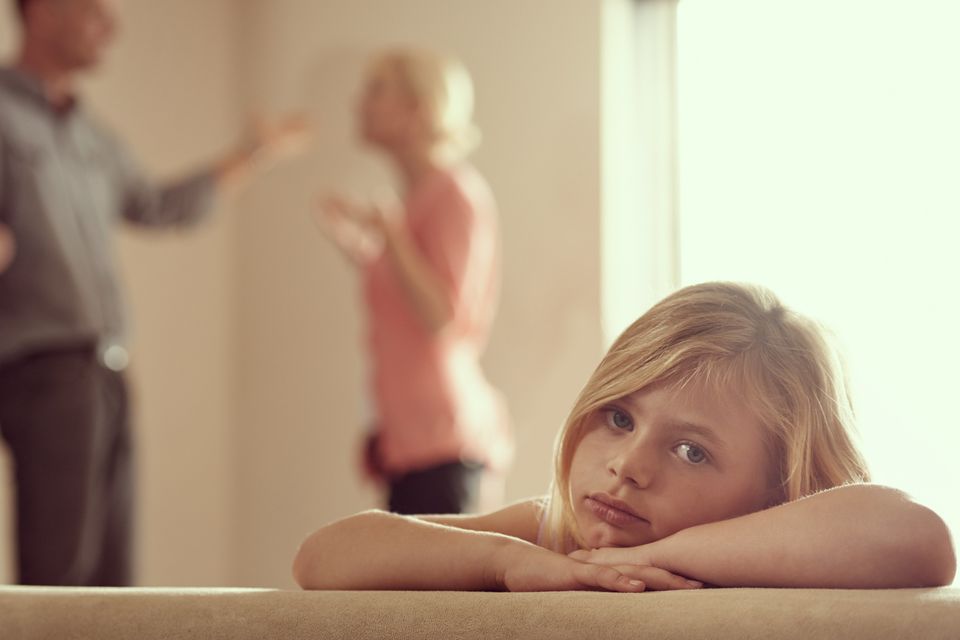Breaking up with someone is never easy, and it gets harder if you’re married or have been together for a long time, but it is especially difficult if there are children involved. In the middle of all the stress and upset, it’s vital for parents to be able to put aside their differences and somehow work together to help their children get through this difficult time as well, making sure those children are as happy and settled as they can be, and always letting them know that the break up isn’t their fault at all (this is something children often worry about, and parents need to reassure them it’s nothing they did).
The issue is that emotions can be raw, and there’s usually a lot of guilt and anger involved when a relationship breaks down, so working together for the children isn’t always an easy thing to do, but it must be done. With that in mind, here are some ways to address difficulties after a breakup for the sake of the children.
How Children Feel
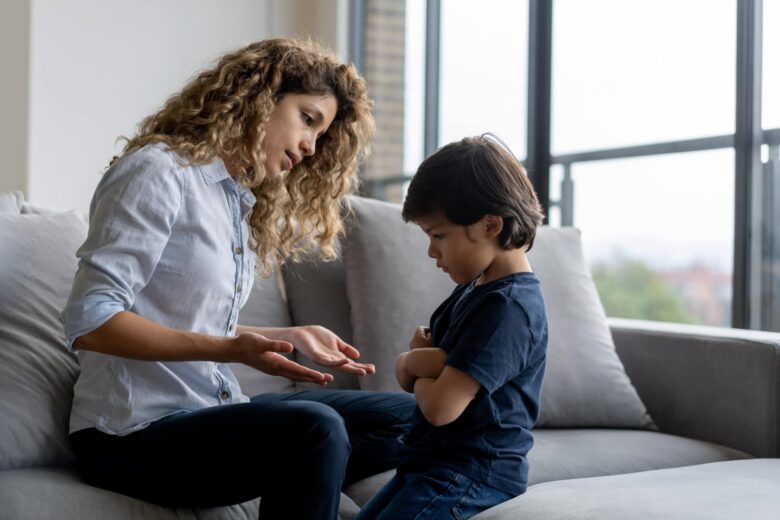
Source: baby-chick.com
Before looking into how to deal with parental differences after a break up so the children can be happy and stress-free, it’s important to understand how a divorce can affect them so you know what to look out for and can understand more about how they’re feeling and why they might be acting in the way they are.
Children can often sense issues between their parents even if they are civil to one another, which can lead to more stress and upset. The more you clash with your partner, the more this will impact your children negatively. This is why it’s so important to remember that just because your marriage is over, you’re still going to have to work with your ex to take care of your children – in fact, it’s vital that you do.
Open Communication
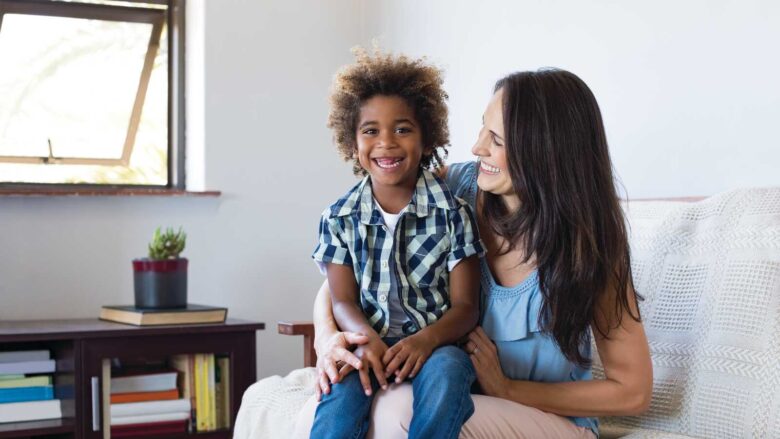
One way to address your differences after a break up (and perhaps the best way) is to make sure you have open communication and are as positive as possible – or at least not overly negative. You’ll have a lot to talk about even if you’re no longer married, as your children need to have a lot of care, and there will be many decisions to make about their lives, including their health and education.
It’s a good idea to come up with one communication channel that’s going to work best for you – it might be that you’re not happy to talk face to face, perhaps because you know you’ll be angry, so you choose a different way to keep in touch, like emails or text messages. No matter what it is, make sure you each know that those messages are important and that you’ll always respond. It’s also wise to only use whatever channel you use to talk about your children and never to bring any emotions or other divorce aspects into the discussion, as this can make things a lot harder and take the focus away from the children when that’s precisely where it needs to be.
Think About The Children’s Needs

The younger the children, the more needs they’ll have, but even older teenagers are going to need – and want – things from their parents, so make it a rule to always think about your children’s needs first (and that rule should apply to both parents).
When you make any decisions, come to conclusions that are in the best interests of your children, even if it means compromise in some cases. Remember that children need good routines and consistency in life, so that’s a good place to start when addressing your differences and ensuring your children get what they want. Even if you don’t want to spend time with your ex, your children probably will want to, and if that’s the compromise you have to make, you’ll need to work out how to do it and make peace with it so that your children can be happy. That’s just one example, but the same principle will apply all the time.
Research What To Do
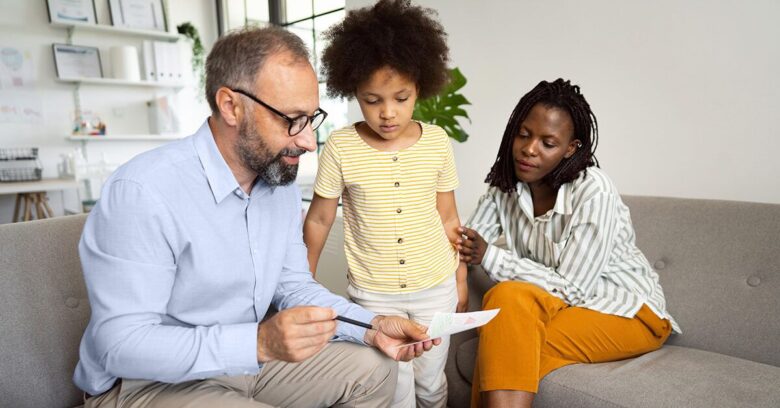
No one gets married with the idea of divorce in their minds, just as no married couple has children knowing they’ll split up in a few years. However, although it might not be what either of you planned, sometimes it happens, and that’s when it’s important to do your research and get advice. After all, if you never expected it to happen, you won’t know what to do, and it’s not as though many people are experts in divorce anyway unless you are a divorce lawyer or have been divorced before.
When it comes to how to co-parent your children in the right way so that everyone is happy, it’s a good idea to read as much as you can about how to get it right, and sites like Two Healthy Homes are a great place to start. You’ll find advice, ideas, and plenty of information about how to co-parent successfully so that your children will be affected as little as possible, even if you are getting a divorce.
Although it can be hard to start this kind of research due to the emotions involved, it’s also one of the best things you can do, as you’ll realize you’re not alone, and you’ll get some useful advice that you can put into action right away, helping everyone (including yourself) in the process. The sooner you start your research, the better for everyone.
Make A Plan
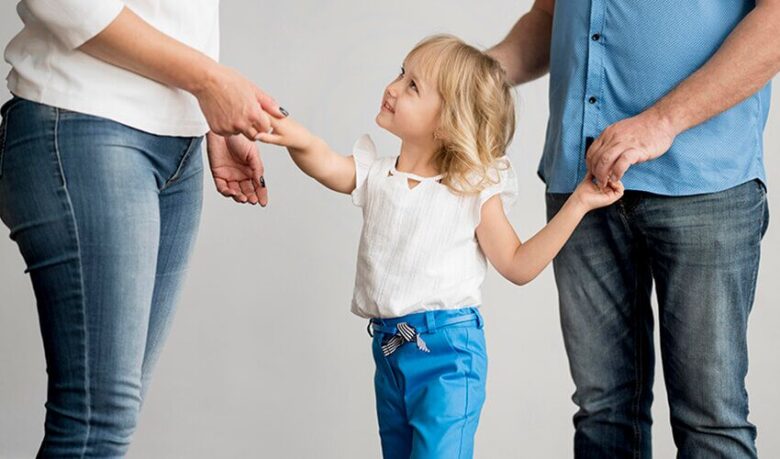
Source: justicefamilylawyers.com.au
Knowing that you need to co-parent with your ex-spouse and just hoping for the best isn’t really a good idea – it can lead to miscommunication, confusion, and upset, leading to more stress for the children and anyone else involved in the situation. It’s far better to make a co-parenting plan so that you can set boundaries and expectations from the start, and your ex can do the same (remember, you both need to work together, so a compromise might be needed).
You’ll need to think about things like custody arrangements, visitations, holidays, finances, and more. This won’t necessarily be easy to do, and it’s not a conversation you’ll be happy to have or enjoy having, but once it’s done and everyone sticks to the rules, you can start getting back to your new normal and ensuring your children are disrupted as little as possible.

